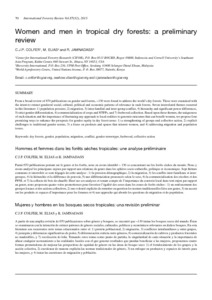Location
What we do
We are reminded on a daily basis that the natural environment in which we live is vitally important for our well-being, whether it is in the form of climate change, global warming, declining fertility or dwindling natural resources.
Sustainable forest management plays a central role in our future, which in turn requires the training and development of forestry professionals. That's where the CFA comes in. We work in all corners of the Commonwealth and beyond to promote the wise management of trees and forests, and we do this in five main ways.
First, we publish world-class science in our peer-reviewed forestry journal, the International Forestry Review, and the latest global forestry news and views in the CFA Newsletter.
Second, we facilitate networking of professional members and organisations and exchange of knowledge via our quarterly newsletter, website, Facebook page and Twitter feed.
Third, we encourage professional excellence and promote career development using a range of awards, such as the Queen’s Award for Forestry, the Young Forester Award and the Young Scientist Research Award.
Fourth, we carry out a range of specific projects in the field that have been identified by our membership.
And fifth, we promote capacity building by helping to organise training courses, workshops, and conferences.
We are also the home to the secretariat for the Standing Committee on Commonwealth Forests, which is comprised of representatives of all of the forest departments from throughout the Commonwealth. The committee provides a unified voice on forestry matters to governments and international meetings and organises the Commonwealth Forestry Conference, an event which takes place every four years.
Members:
Resources
Displaying 1 - 5 of 20Women and men in tropical dry forests: a preliminary review
From a broad review of 670 publications on gender and forests, ~130 were found to address the world’s dry forests. These were examined with the intent to extract gendered social, cultural, political and economic patterns of relevance in such forests. Seven interrelated themes recurred in this literature: 1) population pressure, 2) migration, 3) intra-familial and inter-group conflict, 4) hierarchy and significant power differences, 5) strict gender differentiation, 6) commercialization of crops and NTFPs, and 7) fuelwood collection.
Women and men in tropical dry forests: a preliminary review
From a broad review of 670 publications on gender and forests, ~130 were found to address the world’s dry forests. These were examined with the intent to extract gendered social, cultural, political and economic patterns of relevance in such forests. Seven interrelated themes recurred in this literature: 1) population pressure, 2) migration, 3) intra-familial and inter-group conflict, 4) hierarchy and significant power differences, 5) strict gender differentiation, 6) commercialization of crops and NTFPs, and 7) fuelwood collection.
Women and men in tropical dry forests: a preliminary review
From a broad review of 670 publications on gender and forests, ~130 were found to address the world’s dry forests. These were examined with the intent to extract gendered social, cultural, political and economic patterns of relevance in such forests. Seven interrelated themes recurred in this literature: 1) population pressure, 2) migration, 3) intra-familial and inter-group conflict, 4) hierarchy and significant power differences, 5) strict gender differentiation, 6) commercialization of crops and NTFPs, and 7) fuelwood collection.
Perceptions of and Adaptation to Environmental Change in Forest-Adjacent Communities in Three African Nations
SUMMARYSemi-structured interviews were used to explore how rural communities near forests are responding to environmental change in three African nations — Cameroon, Equatorial Guinea and Rwanda. The study first recounts people's perception of environmental change — what are the issues of greatest concern identified by local communities? Second, it explores people's responses to identified environmental problems and in particular the role of forests in these processes.
Participatory Forest Management in China: Key Challenges and Ways Forward
SUMMARYParticipatory forest management in China has been a dynamic and evolving process towards sustainable forest management, gradually integrating forest management with rural development by enhancing community participation and benefits derived from forest management. Participatory forest management has been increasingly supported by fiscal policy, land tenure reforms, management models and capacity building initiatives. It has also become an important discourse for sustainable forest management (SFM) in China.



